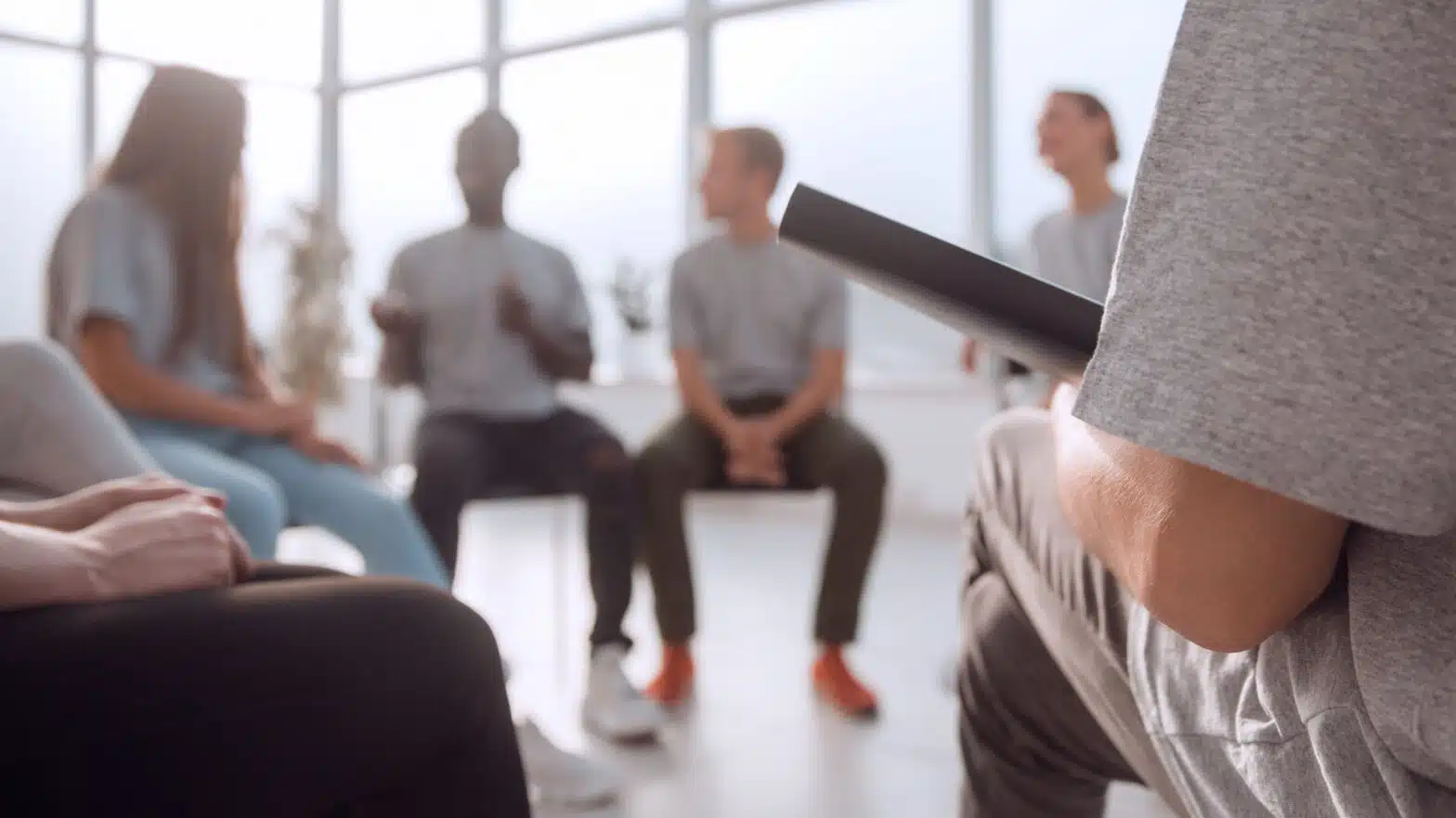Common Group Therapy Exercises & Activities
Group therapy exercises and activities help group members build self-esteem, create healthy coping strategies, combat negative thoughts, and learn new skills, including social skills, to increase overall wellness and treat the psychological aspects of substance abuse.

Group therapy sessions can be an effective tool for addiction treatment because it offers a supportive environment for those with shared experiences to interact and heal together.
Group therapy activities provide an emotional connection, support, education, guidance, and encouragement to improve mental, emotional, and physical well-being.
Cognitive Behavioral Exercises
Cognitive behavioral therapy (CBT) uses several different strategies to manage the cognitive, behavioral, and psychological components of mental health disorders and addiction.
One CBT exercise is cognitive restructuring, designed to help people examine unhelpful thinking patterns and create new coping skills, which is vital to relapse prevention.
Icebreakers
Icebreakers can play an essential role in helping group members connect in a group setting. They can also enhance cooperation and participation.
One example of an icebreaker is Two Truths and a Lie, where the facilitator instructs each member of the group to write three statements on a piece of paper.
Two of those statements are true, and one is a lie. The other group members then guessed which was true and which was not for each person.
Another icebreaker is called desert island, where each member imagines they are being sent to a desert island.
They will be able to take all essential items, such as clothes or medicine, but they will be allowed three additional items. They will write these items on a sheet of paper and share their choices with the group.
Mindfulness Techniques
Mindfulness is a type of meditation in which you focus on being aware of your environment and feelings in the moment.
Mindfulness techniques may include positive affirmations, practicing self-compassion, meditation when sitting or walking, or body scan meditation.
Mindfulness exercises have been shown to help with many conditions, including physical health problems, anxiety, and depression, or may serve as a form of anger management and stress management.
Expressive Arts
Expressive art therapy may be used in group therapy or individual therapy to treat mental illness. Art therapy can act as a form of self-care, slow cognitive decline, and enhance the quality of life.
A mental health professional may use art therapy to help a group of people improve their interpersonal relationships and express themselves more freely.
Group Discussions
Group discussions during group counseling are powerful aids in active learning.
A well-facilitated discussion allows group members to practice communication skills and create group cohesion.
Group members may discuss a psychoeducational element of mental health or another specific topic.
Problem-Solving And Decision-Making
Group therapy facilitates role-playing to practice coping skills and problem-solving for handling high-stress situations.
Group therapy can provide a safe environment where the individual may air an issue, and the group can aid in decision-making.
Group decision-making has the advantage of drawing from the experiences and perspectives of others, which may lead to a more effective decision than an individual could reach on their own.
Learn More About Group Therapy At Spring Hill
If you or a loved one are interested in group therapy to treat a substance use disorder, we can help. Contact Spring Hill Recovery Center to learn more.
- Brown University https://www.brown.edu/sheridan/teaching-learning-resources/teaching-resources/classroom-practices/learning-contexts/discussions/tips/
- Mayo Clinic https://www.mayoclinic.org/healthy-lifestyle/consumer-health/in-depth/mindfulness-exercises/art-20046356/
- Mental Health Foundation https://www.mentalhealth.org.uk/explore-mental-health/publications/how-look-after-your-mental-health-using-mindfulness/
- National Library Of Medicine: PubMed https://www.ncbi.nlm.nih.gov/pmc/articles/PMC4610619/
- National Library Of Medicine: PubMed https://www.ncbi.nlm.nih.gov/pmc/articles/PMC9472646/
- National Health Service (NHS) https://www.nhs.uk/every-mind-matters/mental-wellbeing-tips/self-help-cbt-techniques/thought-record/
- University Of Minnesota, Twin Cities https://open.lib.umn.edu/principlesmanagement/chapter/11-5-decision-making-in-groups/

